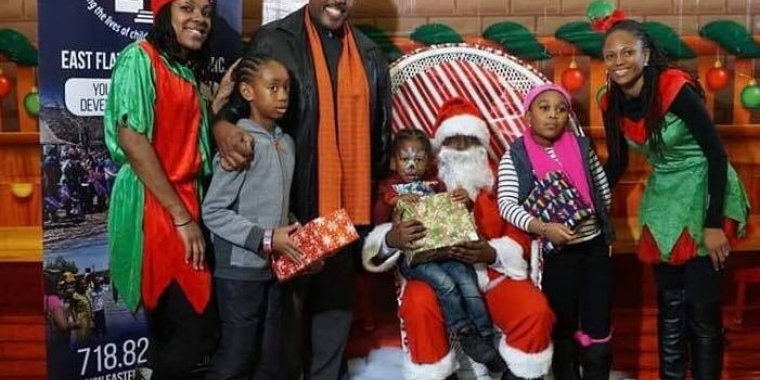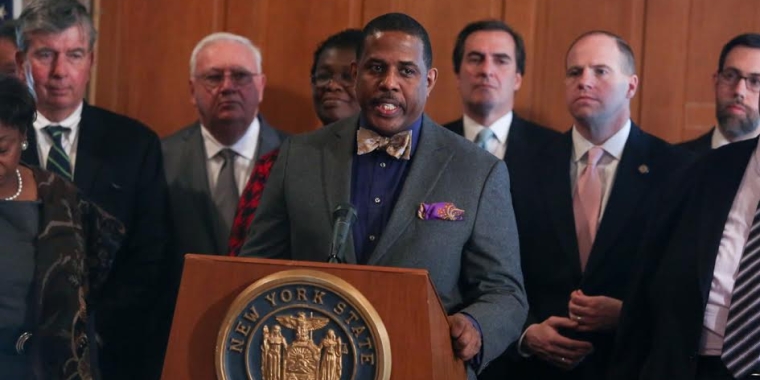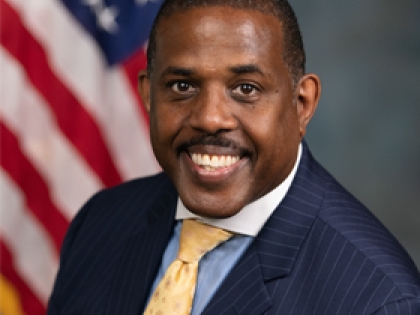
Senator Kevin Parker Brings Kwanzaa Greetings
Kevin S. Parker
December 26, 2013
-
ISSUE:
- Constituents Corner
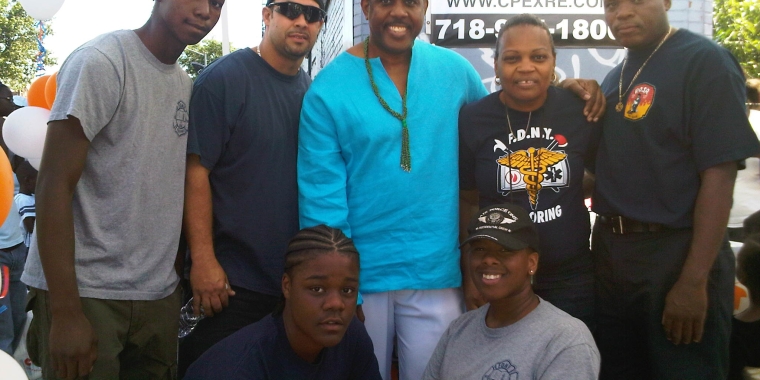
Today we celebrate UMOJA – Unity! The first of seven principles of Kwanzaa. Kwanzaa is rooted in seven principles known as Nguzo Saba, and each value represents an aspect of African philosophy. UMOJA encourages that each member of the family and their respective communities are constructed by interconnected interpersonal relationships. Through UMOJA, we strive for and maintain unity in the family, community, nation, and race. A candle holder known as a kinara is lit during Kwanzaa and fits seven candles, each representing one of the Kwanzaa principles.
Kwanzaa was founded in 1966 by Dr. Maulana Karenga as a means to help African Americans reconnect with their African cultural and historical heritage by uniting in meditation and study of African traditions and Nguzu Saba, the "seven principles of African Heritage". Kwanzaa is now celebrated across the Americas among descendants of the Western Africa Diaspora.
Each of the seven days of Kwanzaa is dedicated to one of the following principles, as follows:
- Umoja (Unity): To strive for and to maintain unity in the family, community, nation, and race.
- Kujichagulia (Self-Determination): To define ourselves, name ourselves, create for ourselves, and speak for ourselves.
- Ujima (Collective Work and Responsibility): To build and maintain our community together and make our brothers' and sisters' problems our problems, and to solve them together.
- Ujamaa (Cooperative Economics): To build and maintain our own stores, shops, and other businesses and to profit from them together.
- Nia (Purpose): To make our collective vocation the building and developing of our community in order to restore our people to their traditional greatness.
- Kuumba (Creativity): To do always as much as we can, in the way we can, in order to leave our community more beautiful and beneficial than we inherited it.
- Imani (Faith): To believe with all our hearts in our people, our parents, our teachers, our leaders, and the righteousness and victory of our struggle.
Kwanzaa symbols include a decorative mat (Mkeka) on which other symbols are placed, corn (Muhindi) and other crops, a candle holder kinara with seven candles (Mishumaa Saba), a communal cup for pouring libation (Kikimbe cha Umoja), gifts (Zawadi), a poster of the seven principles, and a black, red, and green flag. The symbols were designed to convey the seven principles.
Families celebrating Kwanzaa decorate their households with objects of art; colorful African cloth such as kente, especially the wearing of kaftans by women; and fresh fruits that represent African idealism. It is customary to include children in Kwanzaa ceremonies and to give respect and gratitude to ancestors. Libations are shared, generally with a common chalice, Kikombe cha Umoja, passed around to all celebrants. Non-African Americans also celebrate Kwanzaa. The holiday greeting is "Joyous Kwanzaa".
Harambe! Let's pull together!
###
About Senator Kevin Parker
Senator Kevin S. Parker is intimately familiar with the needs of his ethnically diverse Brooklyn community that consists of 318,000 constituents in Flatbush, East Flatbush, Midwood, Ditmas Park, Kensington, Windsor Terrace, and Park Slope. He is the Ranking Member of the Senate Energy and Telecommunications Committee, Assistant Democratic Leader for Intergovernmental Affairs, and Chair of the Democratic Task Force on New Americans.
Share this Article or Press Release
Newsroom
Go to Newsroom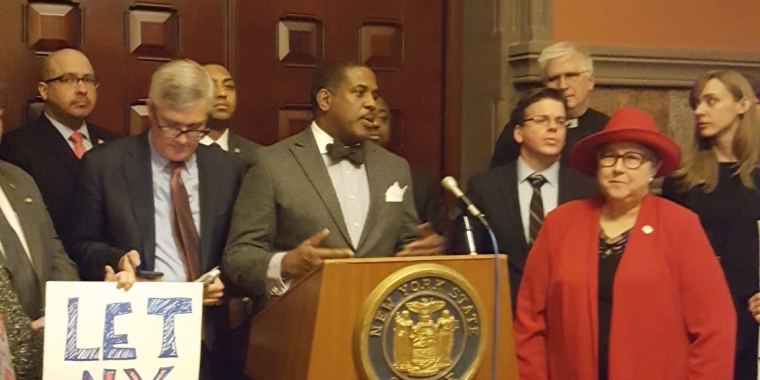
Senator Kevin Parker Hosts Annual Toy Drive in Brooklyn
December 22, 2017
